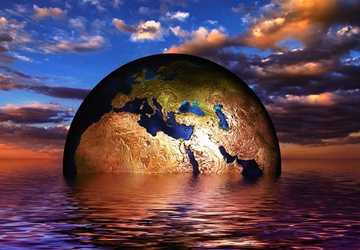Concerns about climate change are growing around the world. Humanity's carbon footprint has increased due to its reliance on fossil fuels and non-renewable resources. As a result, the effects of climate change are only getting worse. Executives in the corporate world must be familiar with the complexities of today's dynamic environment.
Here are some of the ways current climate challenges are hurting businesses around the world.
Global-scale climate change is a major obstacle. Many countries lack the resources to invest in green business practices, creating significant barriers to trade and commerce. If you want to bring about positive environmental change, you have to work harder than everyone else.
Many international industries are plagued by climate change issues.
Emission instability
Emissions from around the world are the most important cause of global warming. Therefore, climate health can be significantly improved by rapidly responding to CO2 emissions.
Energy intensity is a major source of emissions. Total emissions increase with energy intensity.
Emissions increase with GDP per capita and population. As a result, carbon dioxide (CO2) emissions hit an all-time high in 2021, up 6% from the previous year. In a so-called "tragedy of the commons," resource depletion occurs when those with access to shared resources use them without considering the consequences.

Transboundary pollution
Externalities have a major impact on global sustainability issues. For example, preventing pollution across borders is a challenge, as water and air pollution can spread from neighboring countries despite international regulations. Furthermore, since the source of a given CO2 molecule is independent of its impact on climate, addressing this externality is a challenge.
Industry-specific challenges
Every sector is at risk from climate change, but some are more vulnerable than others. For example, rising global temperatures will reduce the likelihood of snowfall, posing a threat to the ski industry.
Extreme climate change impacts could affect many different industries, including agriculture, winemaking, energy and commercial fishing. Therefore, companies in these industries must take precautions to reduce potential harm.
Premium increase
The insurance industry is also affected by climate change. Unlike other industries, insurance affects individuals around the world far more than companies.
Insurers may increase flood and storm premiums to offset the increasing risk of catastrophic weather disasters. Many companies may have to pay more for insurance, which eats into their profits.
Psychological pressure
Climate change poses a threat to people's psyches, wallets and bottom lines. Climate change-related weather disasters, such as floods and prolonged droughts, are associated with increased reports of mental health distress, including mood disorders and post-traumatic stress disorder.
Worker mental health issues can have devastating effects on companies and the economy. As a result, global productivity is likely to slow due to increased stress levels in the business world.
Worsening economic conditions
While developing countries are not affected by climate change, its long-term effects can be felt. Unfortunately, in most cases, the most vulnerable groups are also the ones least able to adapt to climate change.
Potential hazards include:
• Poor water supply
• Exposure to potentially harmful heat

• Issues related to sea level rise
• Some local industries, such as agriculture and fishing, will be closed.
• Slow or no economic growth
Already high economic and health risks to low-income countries and people are expected to increase due to climate change and extreme weather events.


